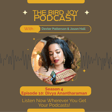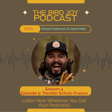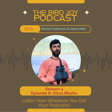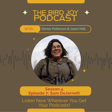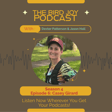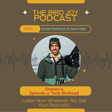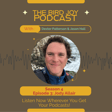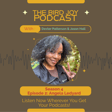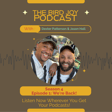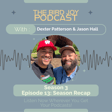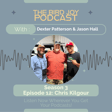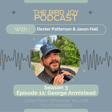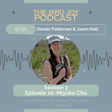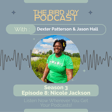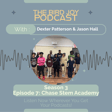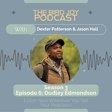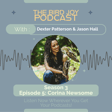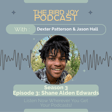
The Joy of Vultures with Kojo Baidoo
In this episode, Dexter and Jason sit down with Kojo Baidoo — a 23-year-old birder, Princeton graduate, and self-proclaimed vulture enthusiast — to explore how one young conservationist is flipping the script on one of the most misunderstood birds in the skies.
Kojo shares how his birding journey began in Maryland and took flight during his time studying Ecology & Evolutionary Biology at Princeton. He opens up about his experiences navigating the birding world as a young Black birder, the mentors who shaped him, and how he’s using social media to educate and inspire. From viral reels to fieldwork with The Nature Conservancy, Kojo’s mission is clear: even the “ugly” birds deserve joy.
The conversation also touches on Kojo’s recent trip to witness the Sandhill Crane migration, his current work as a Hubbard Fellow, and advice for aspiring birders who feel like outsiders in the outdoor space. Kojo’s blend of humor, heart, and scientific insight makes this episode a powerful reminder that birding can be a tool for joy, community, and change.
📲 Follow Kojo
Instagram: @kojobirder
Learn more about Black Vultures here
💬 Stay Connected
Subscribe, rate, and review Bird Joy wherever you get your podcasts. Follow us on social @thebirdjoypod for more feathered joy and behind-the-scenes content!
